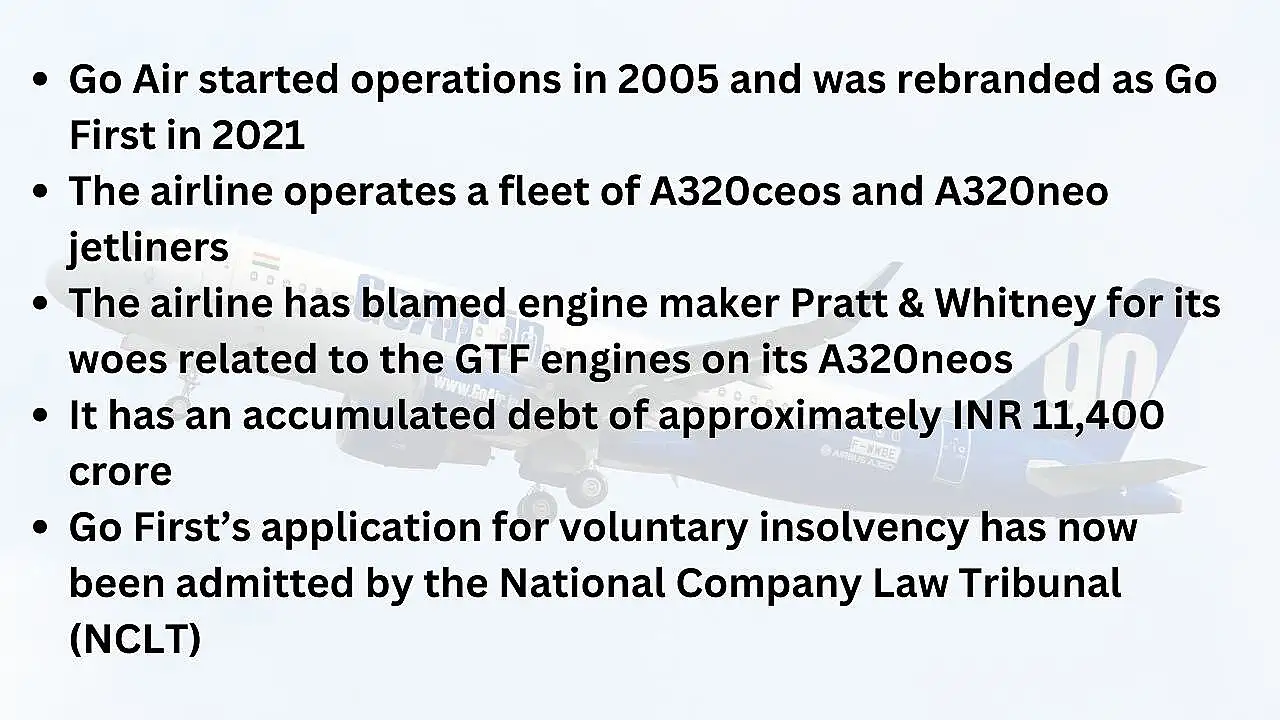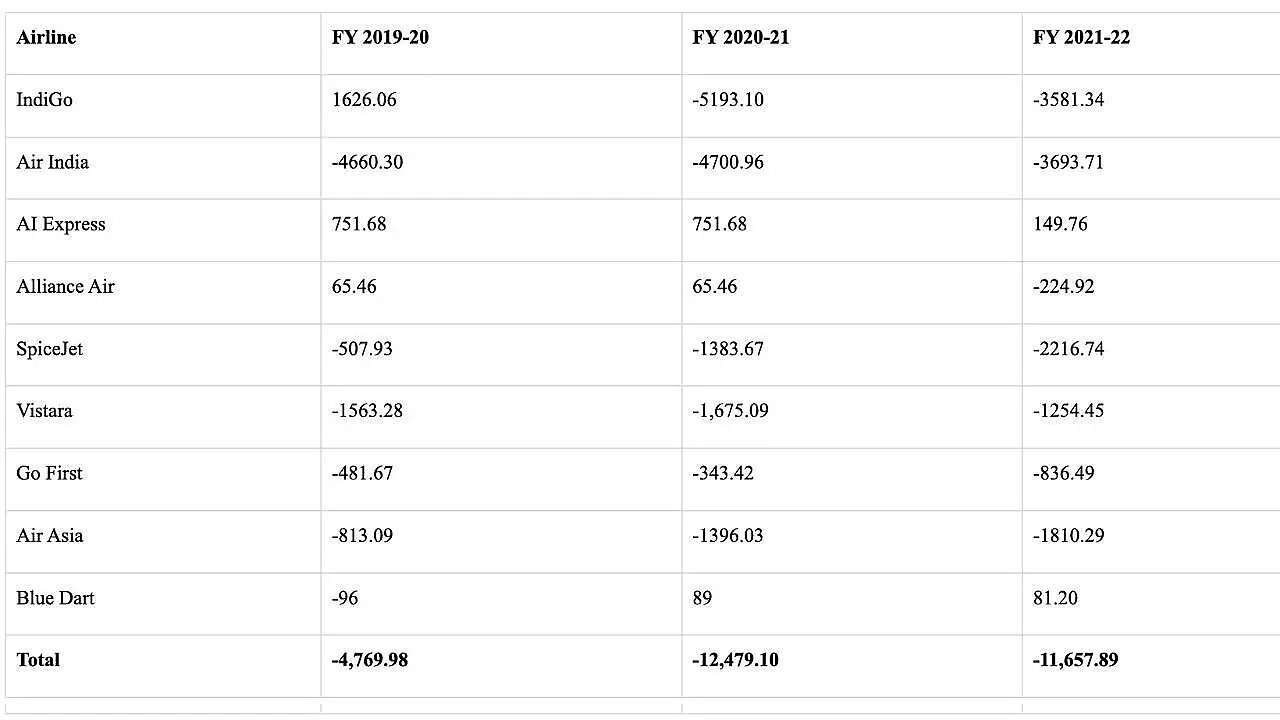
The cessation of flights earlier this month by Go First surprised many of the airline’s passengers, who had booked tickets for travel with the Ultra Low-Cost Carrier (ULCC). What started as a cancellation of flights early in May quickly spiralled into the airline announcing the cancellation of all flights till May 12, a date now extended till May 19. The Directorate General of Civil Aviation (DGCA) has also directed the airline to stop accepting ticket bookings, depriving it of a vital source of revenue to stay afloat. The ULCC hoped to restart operations by September 2023.
Go First’s application for voluntary insolvency has now been admitted by the National Company Law Tribunal (NCLT), in which it blamed engine maker Pratt & Whitney’s (P&W) Geared Turbofan (GTF) engines which power its A320neo jetliners. The airline stated that its aircraft on the ground increased from 31% in 2020 to more than 50% in April 2023, resulting in losses of over INR 10,800 crore.
The already mounting debt of about INR 11.400 crore will rapidly increase due to the halting of operations by the airline, which has 7,000 direct and 10,000 indirect employees. It has also defaulted on dues worth INR 2,660 crore to airport lessors.
Downward Spiral
Go First has been flying since 2005 but never distinguished itself as an airline. The airline grew too slowly, and problems with P&W GTF engines powering its A320neo fleet have remained unresolved since 2018. Some of the issues in the past that afflicted the engines were related to bearing failure, combustor erosion, low-pressure turbine blade fractures and other issues.
As per Airbus data (as on April 30), the airline had a fleet of 50 A320neos and five A320ceos. Go First ordered 144 A320neos and 15 A320ceos, taking delivery of 56 and 15 aircraft, respectively. It inducted its 55th A320neo in November 2022, while its first A320neo entered service in June 2016. The airline had opted for P&W engines for all its A320neos as it promised impressive fuel-efficiency gains. Its A320neos were configured with 186 seats, featuring Airbus’ innovative Spaceflex cabin.

The ULCC was also severely impacted in the first wave of the pandemic and defaulted on some of its aircraft lease agreements between February 2020 to March 2021. The Wadia Group rebranded the airline from Go Air to Go First in May 2021, which only delayed the inevitable.
Another challenge for Go First is the request from its lessors - Aviation Capital Group and Jackson Square Aviation, which have asked the DGCA to deregister these aircraft. The lessors own 45 of its aircraft. If Go First cannot restart operations soon, it is unlikely that Airbus will have any trouble finding new customers for these aircraft, as many airlines currently have to wait for years before taking delivery of their A320neos. IndiGo, for example, already has experience operating A320neos powered by P&W GTF engines.
Systemic Issues
In March, the aviation consultancy CAPA India announced in its 2023-24 outlook that Indian carriers would accumulate consolidated losses of approximately INR 12,800 to INR 14,400 crore, of which Full Service Carriers would incur losses of up to INR 9,600 crore. According to information provided by the Ministry of Civil Aviation in November 2022, India’s civil aviation industry accumulated losses worth INR 4,770 crore (FY20), INR 12,479 crore (FY21) and INR 11,658 crore (FY22). The increasing losses are attributed to the disruption caused by the pandemic, currency depreciation (USD/INR), fluctuation in ATF prices which constitute a major portion of the operational cost of airlines and increase in crude oil prices in the international market. Indian carriers also have to contend with brutal cost competition on airline tickets and associated services, limiting their ability to increase profitability in a notoriously high-cost environment due to high taxation.

Go First now appears to be in real danger of following the footsteps of Kingfisher Airlines, which collapsed in 2012 and Jet Airways, which ran aground in 2019. The demise of an airline with a large footprint in terms of its employees and vendors can have a disruptive effect on those associated with it, as was the case with Kingfisher Airlines and Jet Airways. Many of Go First’s employees will likely be snapped up by Indian carriers, accelerating their growth plans. However, there is also the matter of employees receiving pending dues from Go First and the refund for air tickets booked by unsuspecting customers.
In the immediate instance, all steps possible must be taken to allow Go First to resume operations. Ideally, this should happen as soon as possible or before the end of the year. If not, Go First and the Wadia Group will have to contend with the possibility of the carrier entering the history pages as another failed Indian airline.
Also Read
Go First Looks To Fight Its Way Out Of An Existential Crisis